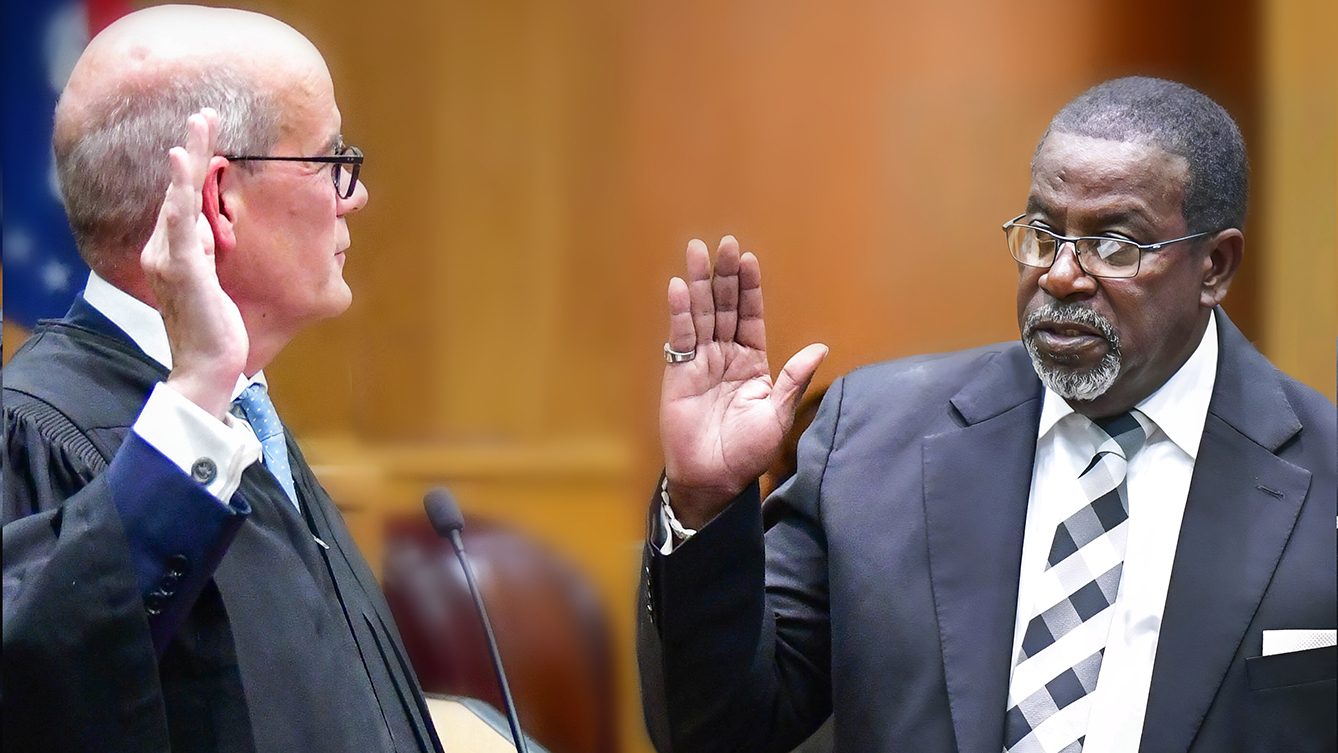School leaders ponder potential cuts
Published 5:00 am Friday, October 31, 2008
School districts around the state are facing a potential newfunding problem in the middle of already tight economic times, aproblem that could result in service cuts if enacted.
Gov. Haley Barbour earlier this month called for all stateagencies, including the Mississippi Department of Education, tosubmit revised budgets reflecting a 2 percent decrease in statefunding for the current fiscal year and a 4 or 5 percent reductionfor the next to help offset decreased tax collections this year, astatement from his office explained.
The seemingly small reduction percentages equal hundreds ofthousands of dollars for the Brookhaven and Lincoln County schooldistricts.
Brookhaven School District Superintendent Lea Barrett said a 2percent reduction of state funding in her system’s $27.5 millionbudget would result in a loss of $269,525, while a 4 or 5 percentreduction for fiscal year 2010 would mean losses of $539,050 and$673,813, respectively.
Lincoln County School District Superintendent Terry Brister saida 2 percent reduction of the county’s $25.5 million budget woulddecrease his district’s funding by approximately $280,000, while a5 percent reduction would take away almost $700,000.
Barrett said the effort to trim costs could result in a decreaseof $50 million of Mississippi Adequate Education Program fundingfor the coming year. The announcement spurred state SuperintendentDr. Hank Bounds to call a meeting of the Mississippi Association ofSchool Superintendents this week.
“Yeah, I’m worried about it,” Barrett said of the possibility ofthe funding reductions. “In order to survive it, we would have tomake some cuts in programs and services – we couldn’t just do it inour fund balance.”
Neither Barrett nor Brister mentioned the possibility oflayoffs, though both admitted the overwhelming majority of theirdistricts’ budgets – 75 percent and above – is for personnel. Bothsaid the majority of the remaining expenditures are non-negotiableoperating costs.
In the past, both districts have met such challenges by choosingnot to replace retired or resigning teachers instead of releasingcurrent ones.
Finding other ways to trim the budget in the middle of theschool year is challenging, Barrett said. She said the requestedprojections must be made on current MAEP funding levels, while theprogram is typically based on the coming year’s enrollment andadjusted for inflation. Basing the cuts on the current allocationwill mean more funding lost.
The early solutions to the challenge, all devised within thelast few days, appear to be flawed.
State officials are considering the possibility of districtstapping into their emergency funds, but Barrett said Boundsannounced that between 20 and 25 districts in the state don’t havelarge enough reserves to last throughout the current year.
Barrett said the state superintendent is also consideringchanging the school year from August through May to Septemberthrough June to reduce utility costs, though severalsuperintendents believe the savings would be far too minimal.
Yet another option would be to cut out several holidays, Barrettsaid.
With the budget reductions still only a possibility and theanswers to the challenges they create not yet discovered, about theonly constant in the situation is that school officials areconcerned.
“I understand the economy, and I understand that everyone needsto make some cuts, but we need to be careful about where we makethem,” Brister advised. “A school district our size – we stretchour money to the max anyway.”
Brister said superintendents across the state aren’t necessarilyshocked at the proposal, but are definitely dazed. Still, he saidthere is no reason for school officials to lose their cool.
“Everything is set already for this year, and it would be toughto make these cuts – that’s why I’m not panicking,” he said. “Itchanges up there by day and night, and we don’t know to what extent[Barbour] is going to push these cuts.”
Local legislators, who will ultimately have a say in whether thecuts affect MDE, backed up Brister’s outlook.
“Of course some things are going to get cut, more than likely,but we’re just not there yet – we’ve got some more information weneed to see first,” said District 53 Rep. Bobby Moak. “If you wantto call it prioritizing, then we prioritize, but you have to takecare of the essential services of government first – education,health care, law enforcement – then we can worry about otheraspects of government.”
District 92 Rep. Becky Currie also believes the cuts can beavoided, but she approves of the governor’s efforts to prepare fora worst-case scenario.
“All legislators want to fully fund education, but we all musttighten our belts,” she said. “We left last year with the rainy dayfund fully funded, but this year it may be raining. But I believeif we’re frugal with taxpayers’ money, we’ll be fine.”
Currie said the Legislature is preparing to attempt another yearof full funding for MAEP, though teacher pay raises are likely outof the question this year.





